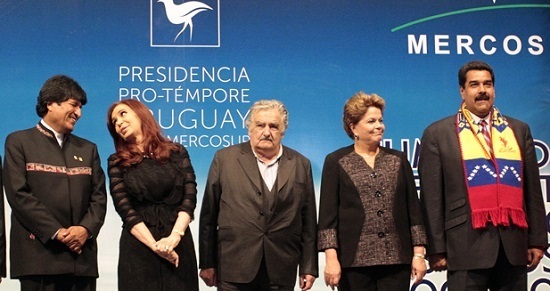
It’s hard to tell before the dust settles, and the situation in each country is unique, but it’s very likely that 2015 will be viewed as a critical year for leftist governments in South America.
Chavismo took a blow yesterday in the country’s Parliamentary elections, the right won the presidential elections in Argentina a couple of weeks ago, Ecuador’s Correa recently announced he would not seek re-election in 2017, impeachment proceedings are moving forward against the Workers’ Party President Rousseff in Brazil, and Evo Morales’ MAS party lost regional elections in March.
In general terms, and aside from debates about how progressive each of these governments are, the defeats point to clearer political fault lines in the region. It could be described, as many have, as the end of a progressive cycle, or the receding waves of the pink tide. But the goal of many of these administrations, and their champions and beneficiaries, was to create economic, political and social changes that would outlast electoral defeats. From Venezuela to Argentina, generations have been impacted by the social programs, rights, regional solidarity, and empowering politics of these administrations. The political experience of living under these governments has shaped progressive ideology and imagination that will survive presidents.
In addition, while politics might change above, social movements have been organizing all of these years in ways that aren’t defined wholly by party power, but by autonomous relations strengthened from below, in urban peripheries, for women’s rights, and in the various struggles against extractivism.
All of this means that the gains of South America’s progressive period, won in the halls of power and in the streets, won’t likely be swept aside anytime soon.
Benjamin Dangl is the author of Dancing with Dynamite: Social Movements and States in Latin America, and is a doctoral candidate in Latin American history at McGill University.
